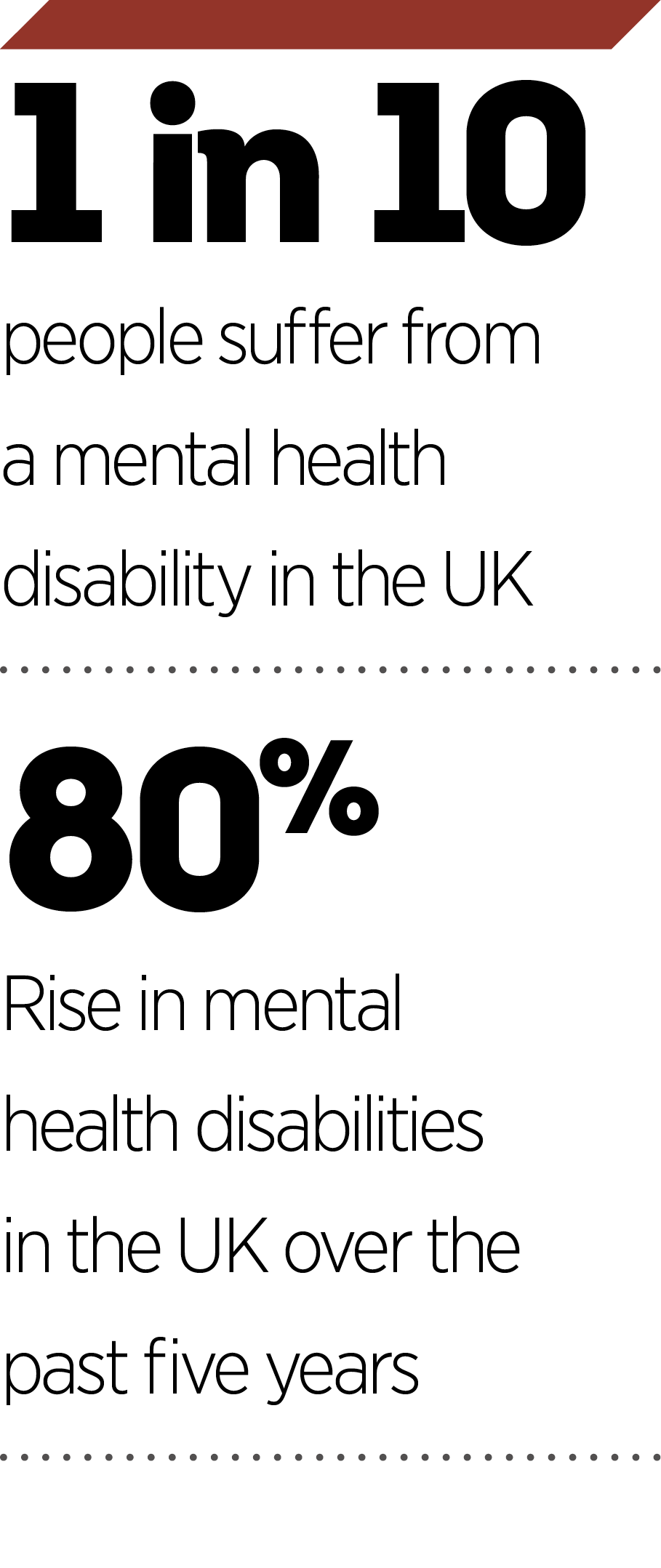Designing a better future for the planet and our mental health
Climate change and mental health are among two of society’s most pressing issues. WSP’s Future Ready programme aims to tackle both problems head-on

With our Future Ready programme, we aim to bring clarity and vision to some of the most difficult challenges facing the planet – the kinds of issues that cannot be tackled with a quick fix
At WSP, we are a 49,000-strong global team that works with companies to design and advise on built-environment projects. This ranges from skyscrapers to railways, roads and energy-generation systems, both for today and the years to come.
In fact, taking a long-term approach is one of our core strengths. With our Future Ready programme, we aim to bring clarity and vision to some of the most difficult challenges facing the planet – the kinds of issues that cannot be tackled with a quick fix.
We’re looking at ways to ‘design out’ loneliness – to create places that don’t exacerbate mental health disabilities
Pay it forward
There are two factors that make transitioning to a zero-carbon economy more important than ever. First of all, we simply have to reduce the amount of greenhouse gases that are being emitted across the world – otherwise, we end up with a diminished planet struggling with extreme weather, higher sea levels and increased disruption. Second, there is an economic imperative: research shows that although reducing greenhouse gas emissions now is a big expense, it is significantly less burdensome for the global economy to take action today than it is to wait until climate change becomes more severe.
Already, a growing number of countries are legislating to become zero-carbon economies. Sweden has committed to becoming a zero-carbon economy by 2045, while Finland, Norway and Denmark have all made similar pledges. Chile, meanwhile, has committed to being carbon-neutral by 2050. We’ll likely see more economies taking similar steps in response to international commitments they’ve made, such as the Paris Climate Agreement, which was signed four years ago.
A zero-carbon future also represents a fantastic business opportunity to innovate faster than the competition. By creating a zero-carbon economy ahead of other nations, countries are perfectly placed to export their skills, products and knowledge to other economies that are keen to reduce their own carbon emissions. However, governments cannot fund the transition to a zero-carbon economy all by themselves: they need private investment and contributions from civil society if they are to succeed.
Space saver
Aside from environmental issues, another aspect of WSP’s Future Ready initiative involves helping individuals with mental health issues. Research has indicated that, even though digital technologies have made communication easier than ever, many societies are suffering from acute levels of loneliness – particularly in cities. On average, people living in cities know just two or three of their neighbours, and 70 percent of those living in apartment blocks don’t know the names of anybody else living in that building.

In the UK, statistics gathered by the National Health Service show that mental health disabilities have increased by about 80 percent over the past five years. This rise can partly be explained by the improved recording of illnesses, but that is certainly not the only reason. At WSP, as major designers of the built environment, we’re looking at ways to ‘design out’ loneliness – to create places that don’t exacerbate mental health disabilities, and to provide spaces where people can still be a productive part of the economy.
Some of the ways in which urban design can help tackle mental health challenges are relatively simple: open spaces and communal areas in which to socialise can all make a difference. Green space in particular can be a good way of reducing mental health disabilities. For individuals with autism, colour coding can help them find their way around, while spaces can be designed to dampen noise levels.
In the UK, one in 10 people suffer from a mental health disability. It’s important that these individuals are given the support they need in order to remain contributors to the economy. This presents designers with a tremendous opportunity – not only to ensure people remain productive, but also to support their mental health and sense of self worth.













